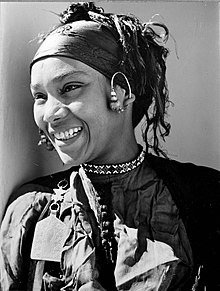"Those who deny freedom to others, deserve it not for themselves"
Abraham Lincoln
INTRODUCTION
As a student of history when ever I hear about the word slave or slavery it strike me as an events that happened in the past, but today I am going to expose you to a sect of people who are still enslave in our vary own african this sect of people are called "haratin" or black moore.
ORIGIN
a tribe of indigenous dark-skinned Africans who live in the Sahel and North Africa. They can be found in modern-day Mauritania, Morocco, Western Sahara, and Algeria, among other places. Chouachin is the name given to them in Tunisia and Libya.
LANGUAGE
The Haratin are unique from current Sub-Saharan Africans, speaking Maghrebi Arabic dialects and a variety of Berber languages.
MIGRATION
When the Green Sahara turned drier, some locals moved to the Sahel seeking a more humid climate, while others, the ancestors of the Haratin, stayed near the oases throughout the Sahara, such as the Draa valley region, where they had resided for centuries.
SLAVERY
(
Source
TIME
Between the 14th and 16th centuries, the tradition was most likely inherited from Bedouins. The "Hassan" monopolized war and political occupations, the "Zwaya" (Zawaya) religious positions, and the "Bidan" (White Moors) owned property and slaves (Haratins, Black Moors) and to a large extent this system still exist till today
SCALE
The Global Slavery Index estimates that at least 90,000 people lived in slavery in Mauritania( a bulk of which are the haratin) in 2018. NGOs on the ground have claimed the accurate number might actually be far more then that probably in the hundreds of thousands.
GEOGRAPHY/DEMOGRAPHY
The haratin are largely found in Mauritania where they account for 40% of the population (~1.5 million). Other region with significant population include Morocco, Algeria, tunisia, libya, and western Sahara.
ABOLITION
In 1960 due to pressure, the Mauritania government officially abolished slavery, and made another update to its slavery law in 1981. However, even after the formalities, abolishment, and new laws, discrimination against Haratin is still widespread, and many continue to be, for all practical purposes, enslaved, while large numbers live in other forms of informal dependence on their former masters.
CONCLUSION
The propose of the article is to create awearness of the plight of people, individual and community who in most cases don't have a voice of their own, and need people like you and me to speak up for injustice.
Authors note
This is one in part of a series of article I will be publishing on slavery and slave trade, please do well to follow me, vote, and reply
